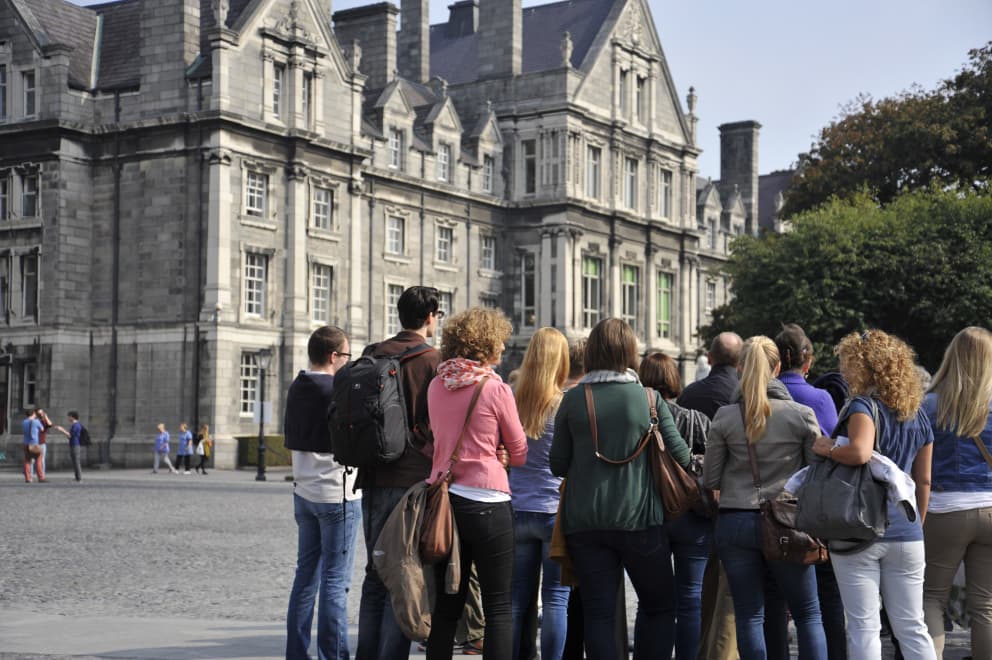How To Get Into Imperial College London: Tips To Help Your Application Stand Out

Summary
Imperial is a research university specialising in science, technology, medicine, and business, with a strong global student body (59% international). Its undergraduate acceptance rates have been around 25% in recent years. Admission requirements include top academic credentials, and for some courses, subject tests like the BMAT or MAT. To strengthen their applications, students should use extracurriculars to highlight a genuine interest in their subject area, engage in wide academic reading, and pursue relevant work experience or projects.
Imperial College London (ICL) is a public research university in London. From an academic standpoint, Imperial exclusively focuses on science, technology, medicine, and business, but there are selected humanities courses under the “Horizon” programme. At ICL, a globally diverse institution, more than 59% of students are international, with more than 125 countries represented.
If you're thinking about applying to Imperial as an international student, keep reading to learn what applicants are up against, how to apply, and what you can do to make sure your ICL application stands out.
What Is Imperial College London’s Acceptance Rate?
Globally, Imperial is ranked 9th in the world based on the 2025 Times Higher Education World University rankings. Based on the same ranking, it is 3rd in the United Kingdom, behind Oxford and Cambridge. This makes Imperial a highly competitive university and difficult to get into.
Generally, acceptance rate for Imperial has hovered around 25%. While this may seem a lot higher than the acceptance rates of top American universities, it is important to note that there are higher barriers to applying to UK universities, including the restriction that one can only apply to 5 UK universities in the academic year. Here are some statistics showing the overall acceptance rate into Imperial over the years.
Imperial College London Offer Rate (Undergraduate)
| Source: Imperial College London - College Statistics Guide | |||
|---|---|---|---|
| Year | Applications | Offers | Offer Rate |
| 2024-2025 | 32,887 | 8,264 | 25.1% |
| 2023-2024 | 30,739 | 7,948 | 25.8% |
| 2022-2023 | 28,877 | 7,616 | 26.3% |
| 2021-2022 | 28,905 | 7,821 | 27.1% |
| 2020-2021 | 25,780 | 8,758 | 33.9% |
Most Competitive Courses at Imperial College London
| Imperial College London Undergraduate Admissions Statistics 2024 | |
|---|---|
| Course | Acceptance Rate |
| Business | 7.4% |
| Computing | 16% |
| Mathematics | 16.6% |
| Mechanical Engineering | 18.4% |
| Medicine | 19.3% |
| Aeronautics | 20% |
| Medical Bioscience | 24% |
| Design Engineering | 24.5% |
| Electrical and Electronic Engineering | 28.7% |
| Biochemistry | 28.8% |
| Chemistry | 35% |
| Physics | 35.4% |
| Biology | 36% |
*For a complete breakdown of admission statistics at Imperial, check out their *Annual Admissions Statistical Report.
What Do You Need To Get Into Imperial College London?
You definitely need to be competitive academically to meet the entry requirements of Imperial. All applicants must meet the entry requirements to take up an offer of a place to study at Imperial. As an globally attuned institution, Imperial accepts a whole range of UK and equivalent international qualifications.
Generally, here are the minimum academic qualifications needed:
European Baccalaureate
- Scores of 80%-85% overall, with scores of 8.5-9 in relevant subjects
United Kingdom A-Levels
- Standard offers between AAA and A*A*A:
- See individual programmes for specific requirements
International Baccalaureate
- Overall scores of 38-42, with scores of 6-7 in relevant subjects at higher level.
- Please note Mathematical Studies cannot take the place of Mathematics, where Mathematics is specified as a required subject
Advanced Placement
- Minimum of 3-4 AP tests with Grades of 5 (see course pages for required subjects). Expected to be taken alongside a relevant high school diploma.
- Where sat independently, departments will seek additional AP tests 4-6
Course-specific Requirements
There is no Imperial-wide entry test although some departments do use tests as part of their admissions process. This can be an online or in-person test administered by a department at Imperial or an external admissions test.
The tests used at Imperial include:
- The Engineering and Science Admissions Test (ESAT)
- The Test of Mathematics for University Admissions (TMUA)
- The University Clinical Aptitude Test (UCAT)
- The Graduate Medical School Admissions Test (GAMSAT)
Keep in mind that tests used can change periodically, so monitor the Imperial website for updates.
For courses that do not have particular subject requirements, high grades are expected in the subjects most relevant to the course. Even for each course, entry grade requirements may differ slightly. As an applicant, you are expected to check the entry requirements for the subject you are applying to.
A Day in My Life: Imperial College London
3 Tips To Help Your Application to Imperial Stand Out
1. Show enthusiasm for the subject
It is important to start thinking of which subject you would want to apply for university early on in your high school career so that you can start to prepare your application early. Importantly, to develop your interest and enthusiasm for a subject, you may want to consider taking part in relevant extra-curricular activities.
For example, if you are interested in the science and engineering courses (e.g. Biochemistry, Physics, Engineering), it would help to join clubs such as Robotics Club or Science Club.
Whatever your subject, consider getting involved in a relevant enrichment program or academic competition to develop a keen interest in the subject whilst encouraging investigation and inquiry into deeper scientific knowledge.
This will also help when you are writing your UCAS statement, given that participating in these activities can show a demonstrated interest in the academic subject.
2. Wider reading
Given that Imperial courses are known to be very rigorous in nature, academic tutors tend to look out for potential students who are motivated and have genuine academic interest through the books that they read. They would want to see students who have read widely and beyond their high school academic syllabus. In part, this shows that the potential student would be able to handle the heavy independent reading required for surviving and thriving in the Imperial academic setting.
3. Relevant work experience
To help demonstrate long term commitment to the subject that you are applying for, whilst also proving that you wish to pursue the subject in aid of your longer term goals, it would be helpful for you to engaging in some relevant work experience.
Regardless of pay, such work experience will be beneficial in allowing you to understand how your interested subject can be applied in the real world to achieve beneficial outcomes. For example, research placement in labs or job shadowing at industry companies or science parks can count as relevant work experience you can participate in.
Final Thoughts
Applying to Imperial can be a stressful affair. It will help to learn about the acceptance rates, admission requirements and some useful tips on how to prepare for the application. Hopefully, this article has covered some ground in guiding you through the application process. Believe in yourself and whatever the outcome, enjoy the process and good luck!
If you need additional help with the application process, book a free consultation with one of our expert UK admission strategists and learn more about our specialized UK university admissions services. They can provide individualized and highly informed support in every aspect of your applications.
Our support includes:
- Matching every student with a team of supporters who are graduates from Oxbridge and other top UK universities
- Addressing every part of the UCAS application in detail - from test prep to personal statements, extracurriculars to interview prep.
- Providing oversight by former Oxbridge admissions officers
- Sharing years of inside UK admissions consulting knowledge unavailable elsewhere
To learn why Crimson is today's leader in selective admissions consulting, check out our story and get registered for upcoming admissions strategy webinars and events, and see for yourself what kind of results our student get!


